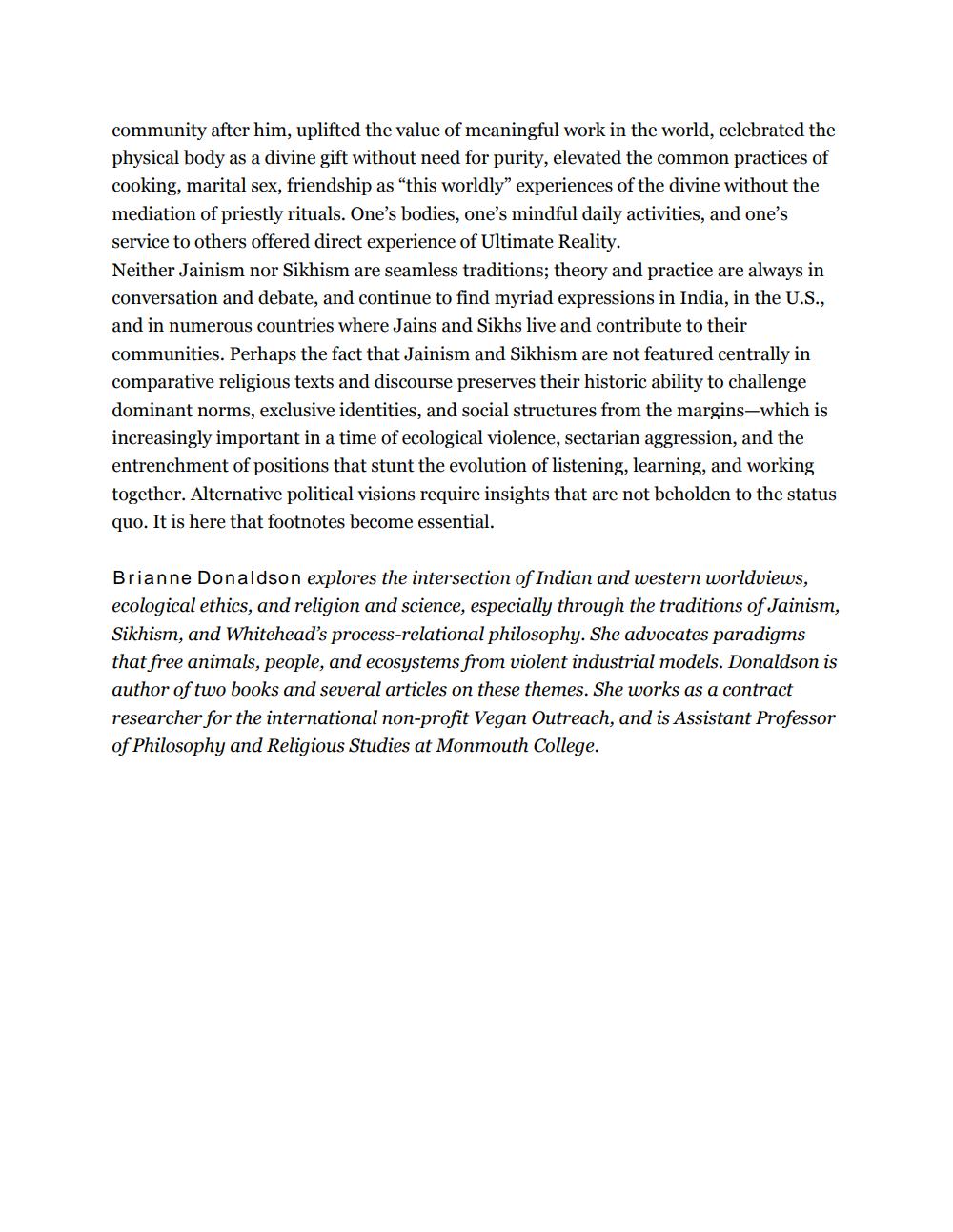________________ community after him, uplifted the value of meaningful work in the world, celebrated the physical body as a divine gift without need for purity, elevated the common practices of cooking, marital sex, friendship as "this worldly" experiences of the divine without the mediation of priestly rituals. One's bodies, one's mindful daily activities, and one's service to others offered direct experience of Ultimate Reality. Neither Jainism nor Sikhism are seamless traditions; theory and practice are always in conversation and debate, and continue to find myriad expressions in India, in the U.S., and in numerous countries where Jains and Sikhs live and contribute to their communities. Perhaps the fact that Jainism and Sikhism are not featured centrally in comparative religious texts and discourse preserves their historic ability to challenge dominant norms, exclusive identities, and social structures from the margins-which is increasingly important in a time of ecological violence, sectarian aggression, and the entrenchment of positions that stunt the evolution of listening, learning, and working together. Alternative political visions require insights that are not beholden to the status quo. It is here that footnotes become essential. Brianne Donaldson explores the intersection of Indian and western worldviews, ecological ethics, and religion and science, especially through the traditions of Jainism, Sikhism, and Whitehead's process-relational philosophy. She advocates paradigms that free animals, people, and ecosystems from violent industrial models. Donaldson is author of two books and several articles on these themes. She works as a contract researcher for the international non-profit Vegan Outreach, and is Assistant Professor of Philosophy and Religious Studies at Monmouth College.




